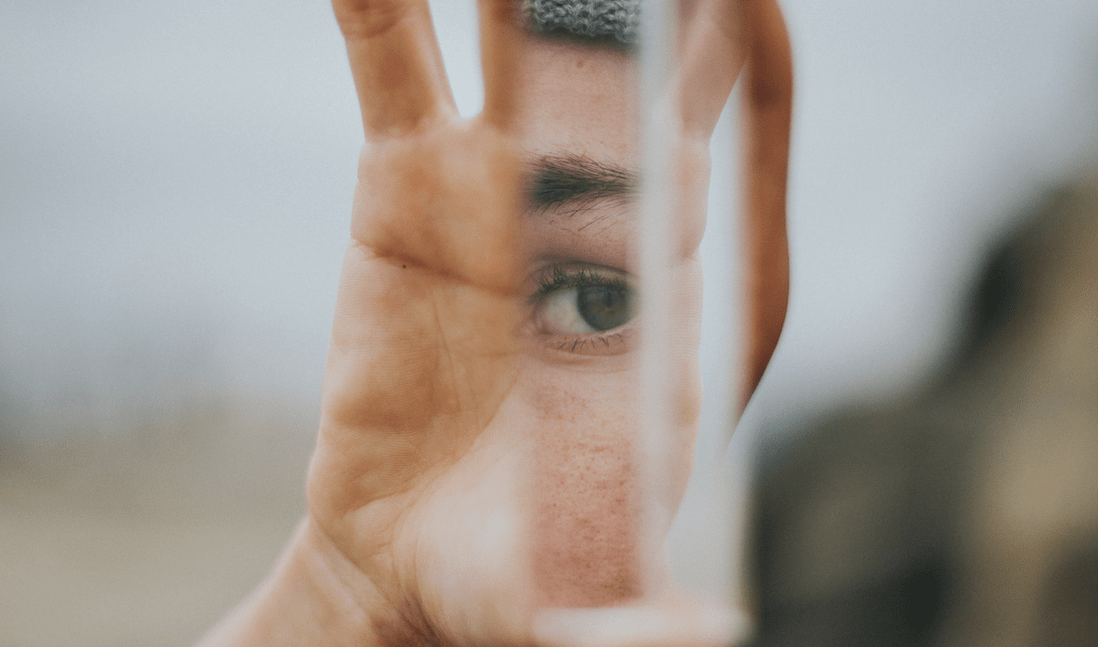Perfect imperfections: representing scars and blemishes in advertising
With the beauty industry continually providing remedies to minimise and treat scars, blemishes, and any supposed imperfections, the adverts we see daily across the internet and TV often portray these completely natural and common signs as things to cover.
However, brands are slowly opening up to the idea of toning down editing on photos and showing more scars. From a mental health perspective, this is highly important in terms of body-image.
72% of people with scars or skin conditions claimed it affects their confidence
Scars and so-called imperfections need to be represented to make us all realise that our bodies are normal and beautiful. Scars can tell stories, show the incredible process of ageing, and are part of what makes us different to one another.
Many of us can be self-conscious of stretch marks, acne or eczema scarring, for example, and it can be frustrating when they do not fade. We must remember that everyone has something they are less fond of on their body, and we are not alone. Instead of wasting time worrying about them, we should celebrate the strength of our bodies, as we have them for as long as we live. They are what keeps us breathing and give us the incredible power of reproducing, if that is what we would like in the future.
For as long as I can remember, I have had stretch marks. Being a redhead, I am incredibly fair with skin that practically looks transparent, so they are noticeable. Scars seem to last a long time on my body because of this, and I spent most of my teenage years, and still the occasional moment, feeling incredibly self-conscious when getting changed in front of others. In fact, a report by the British Skin Foundation concluded that 72% of people with scars or skin conditions claimed it affects their confidence.
It has reminded me that they are entirely natural, and something that I shouldn’t be concerned about
I have spent a lot of money and time on special oils and treatments to help them fade, but nothing seems to work. They are fading naturally on their own as I get older, but I am beginning to realise that it is more common than I once thought. They are mainly associated with pregnancy, or gaining or losing a large amount of weight – two things that I have not particularly experienced.
This made me feel weird, and as if it was unfair that I seem to have magically been gifted with them. When speaking to other women in my family, it seems to be a hereditary thing, which gave me some level of comfort and has helped me care less about them. Although, since seeing more and more models online with them, it has reminded me that they are entirely natural, and something that I shouldn’t be concerned about.
With the rise of influencers in the last few years, Instagram gives me mixed emotions when it comes to representing scars and blemishes. On one hand, you have the airbrushed, fashionable, and beautiful girls showing off their model-like bodies in bikinis and underwear. Then, in contrast, there are many body-positive accounts which refuse to edit and showcase what I would consider more relatable bodies, not being afraid of showing ‘imperfections’.
Beauty brands are capitalising on our insecurities
That being said, it is essential to respect the former example, and many influencers are open about their usage of Facetune and other editing apps. I don’t wish to body shame or discredit those who do not have many imperfections or are not comfortable with showing them on social media. My main concern is that most online influencers seem to have the ideal body with zero faults.
Beauty brands are capitalising on our insecurities that they are generating since we are told wrinkles, stretch marks and other imperfections need to be blurred or made disappear. Supposed life-changing products such as bio-oil, full coverage foundation, tea tree oil and anti-ageing creams all stress how our society does not approve of imperfection.
On top of this pressure, it only takes a few minutes on social media to see celebrities being shamed for their ‘disgusting’ skin or not-bikini-ready bodies. This can make us all feel inadequate since we all share these imperfections. This western-world ideology that permanent scars do not match up with our idea of beauty is sold to us by the media and beauty industries.
We can only hope that brands will continue providing us with real bodies
Even in films, scars are used to represent villains. Take 2019’s Joker, Tony Montana in Scarface, or even the character of Scar in The Lion King. Research has shown that those with facial abnormalities tend to be perceived as untrustworthy, emotionally unstable, unintelligent and dishonest.
Thankfully, some brands are beginning to use less photoshop, and are showing imperfections more. Goodbye Bread, an online fashion brand, uses models with a range of scars, including those from self-harm. The brand said: “Body scars are a part of a person’s life journey that should not be photoshopped”, and “Goodbye Bread wants to show to all girls out there that they should love themselves and reject fashion’s unrealistic standards.”
With the body-positive movement on the rise, we can only hope that brands will continue providing us with real bodies, with scars. If this eventually became the norm, it may even translate to the fashion world. I have doubts that the beauty industry would be on board with this, as imperfection treatment is a big market currently. Even if they began to use more images that are not edited to include bumps on the skin or acne scarring, it would have nothing but positive feedback. It may even encourage people to purchase if they see more everyday examples of people.

Comments